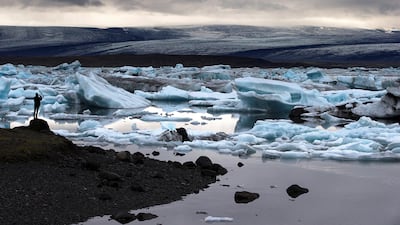As the global tourism industry grows and more people travel more often, travellers are becoming more picky about not just where they go – heli-skiing, heli-hiking or a lodge you can only get to by a white-water raft – but the value of the overall experience.
Tour operators and hotel companies are increasingly becoming lifestyle brands, looking not only to tailor itineraries according to individual preferences for "real" and "hands-on" experiences, but to allow the customer to feel like they are driving the holiday, and have to be able to change plans as an individual's trip progresses and as options become clear.
The increasing sophistication of the affluent traveller and the companies that seek to serve them was the presiding theme.
Transformational travel through one-off, immersive, curated experiences
Gone are the days when holidays were simply a means of "switching off". Today's travellers want the effects of their trip to last long after the holiday has ended, with those using travel companies demanding to know what they can offer that others can't, while others seek "life-changing" experiences through an interior journey and the different perspectives travel can present, in the form of a change of scene, pushing one's boundaries through physical challenge or meeting people from different walks of life, and experiencing different cultures in an "authentic" way.
Those who get the most out of travel – and the companies that profit from them – know that travel is an emotional experience with transformative power.
Many companies report quizzing their clients as the reservation process starts, in an effort to maximise trip satisfaction. This could be as simple as using data to match safari guests by job description, so that they have things in common when they go out on a game drive together, or designing a detailed programme for someone who wants physical and mental renewal through a change of food and environment.
Bragging rights
Along with the satisfaction of travelling to exciting and remote places, comes the desire to tell people about it. A number of tour operators report the "look at me" or "look what I did" syndrome, whereby travellers are provided with high-quality digital footage of themselves by staff, who photograph or film their activities using a variety of lightweight cameras and drones.
A spokesperson for Nomadic Road, an off-road motoring holiday specialist based in India, which runs trips to locations such as Mongolia, Iceland and Patagonia, says the company specialises in "unique trips that only a few will ever see," and that offer "a sense of achievement, a claim to fame, and where there are no other people", and that he "takes filmmakers on every trip to document customers' testimonials and experiences".
Making a difference
Along with bragging rights, some operators report, come some positive outcomes.
Great Plains Conservation, which was founded by two National Geographic staff members, offers trips to African locations such as Kenya and Botswana, says wealthy customers are increasingly wanting to not only go on safaris, but to feel that they have "made a difference" or "left a legacy" in the places they have visited.
Its "Ride With Lions" bike ride, which costs $15,000 (Dh55,000) for six days and funds the widening of a wildlife corridor, has proven especially popular as it "creates a moment in time that you can always reflect back on".
Rosemary Behan attending Pure Life Experiences, a travel summit in Morocco
______________________
Read more:
New cruises for millennial travellers
How we book travel - the view from Google Dubai
On the move: Where is the Arab Airbnb?
______________________

